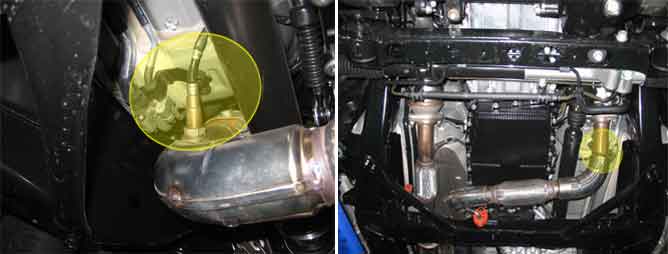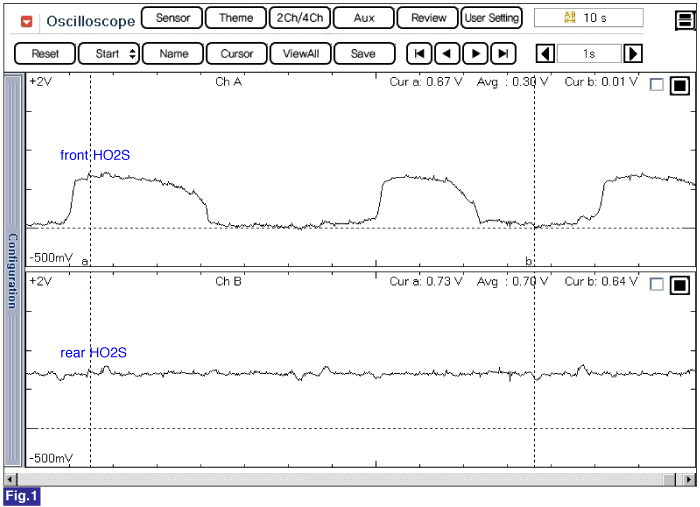

The rear heated oxygen sensor is mounted on the rear side of the Catalytic Converter (warm-up catalytic converter) or in the rear exhaust pipe, which is able to detect catalyst efficiency. The rear heated oxygen sensor (HO2S) produces a voltage between 0V and 1V. This rear heated oxygen sensor is used to estimate the oxygen storage capability. If a catalyst has good conversion properties, the oxygen fluctuations are smoothed by the oxygen storage capacity of the catalyst. If the conversion provided by the catalyst is low due to aging, poisoning or misfiring, then the oxygen fluctuations are similar to signals from the front oxygen sensor.
Checking output signals from HO2S under detecting condition, if the HO2S's response time is too long, ECM sets P0159.
Item | Detecting Condition | Possible Cause | |
DTC Strategy |
•
Monitor signal voltage |
•
Poor connection
•
B2S2
•
ECM | |
General Enable Conditions |
•
Downstream O2S voltage before fuel cut > 0.55V
•
Fuel cut off
•
EGT around downstream O2S > 350C
•
Downstream O2S internal resistance
•
Battery voltage > 10.7V
•
Time after dew point end detected > 30 sec | ||
Case1 | Enable Conditions |
•
Exhasut gas mass flow > 30kg/h | |
Diagnostic Time |
•
Response Time > 5.0 sec (Duration of Downstream O2S voltage from above 0.55V to 0.15V during fuel cut off) | ||
Case2 | Enable Conditions |
•
Exhasut gas mass flow > 10kg/h | |
Diagnostic Time |
•
Transient Time > 0.3 sec (Duration of Downstream O2S voltage from 0.4V to 0.2V during fuel cut off) | ||
MIL ON Condition |
•
NO MIL | ||

Fig. 1) Normal waveforms of front HO2S(the upper) and rear HO2S(the lower)
After warming-up, if accelerator pedal is released suddenly around 4000rpm, the HO2S signal reading will be lower than 200mV resulting from Fuel cut-off for the moment. Conversely, if suddenly accelerator pedal is depressed, HO2S signal reading will be around 0.6V ~1.0V. At idle, Normally HO2S signal will switch from lean to rich with 3 Hz. And as racing, Its frequency rises.